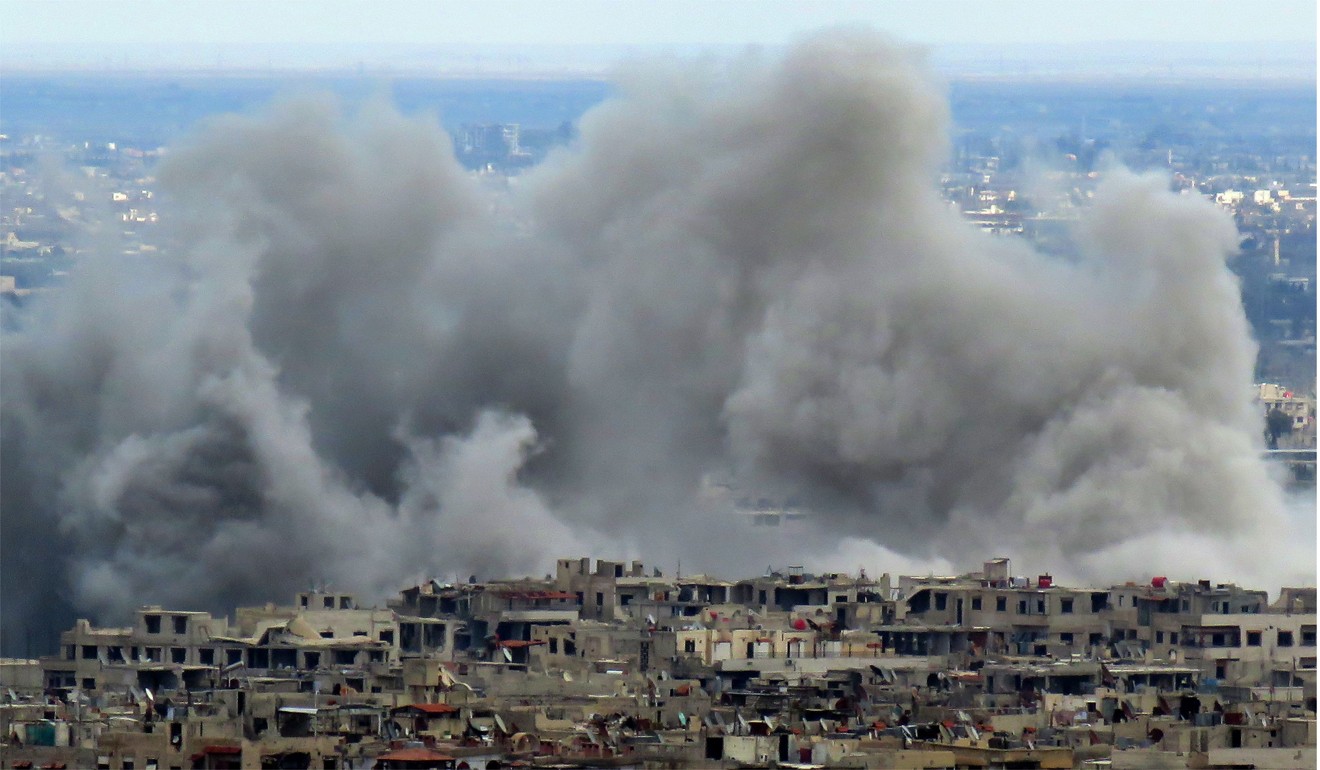
Ghouta bombing continues despite Russia truce as chemical weapons probe opens
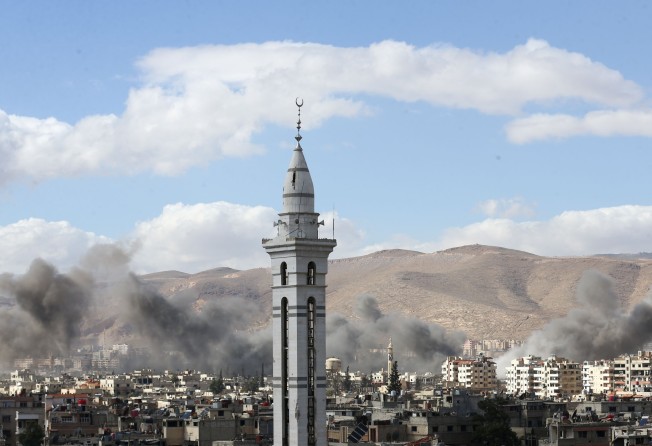
A Russian call for a five-hour truce on Tuesday failed to halt one of the most devastating campaigns of the Syrian war, as residents said government warplanes resumed striking the eastern Ghouta region after a brief lull.
Diplomatic sources, meanwhile, said the chemical weapons watchdog, the Organisation for the Prohibition of Chemical Weapons (OCPW), has opened an investigation into attacks in eastern Ghouta to determine whether banned munitions were used.
And Russia, which backs Syrian President Bashar al-Assad, has been denounced as “both arsonist and fireman” by a top US general.
Diplomatic sources said the OPCW would examine attacks including one on Sunday which health authorities said killed a child and caused symptoms consistent with chlorine gas exposure.

Opposition-held areas in Eastern Ghouta were the scene of chemical attacks in 2013 in which hundreds of civilians were killed in the deadliest use of chemical weapons in decades.
Political leaders in France, the United States and Britain previously said this month they would back targeted military action against Damascus if there were proof chemical weapons had been used by forces under Assad.
As the truce collapsed, Moscow and Damascus blamed rebels, saying fighters had shelled a safe route intended for civilians to leave the enclave. The insurgents denied such shelling.
Russian Foreign Minister Sergei Lavrov said Moscow would press on with a plan to stage similar daily pauses in the fighting, allowing aid to be delivered to eastern Ghouta through what Russia describes as a humanitarian corridor.
But the United Nations said it was proving impossible to aid civilians or evacuate the wounded, and said all sides must instead abide by a 30-day truce sought by the U.N. Security Council.
“We have reports this morning there is continuous fighting in eastern Ghouta,” U.N. humanitarian spokesman Jens Laerke said. “Clearly the situation on the ground is not such that convoys can go in or medical evacuations can go out.”
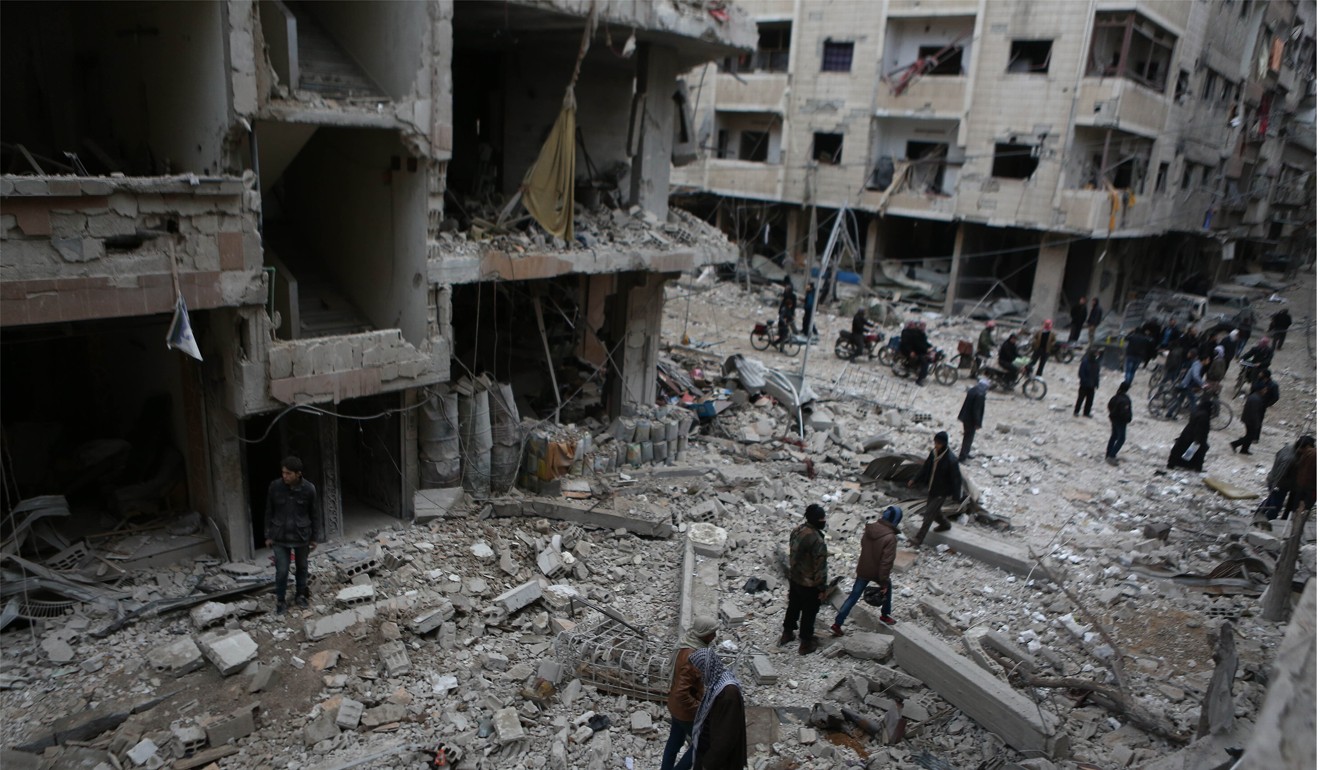
Hundreds of people have died during 10 days of government bombardment of the area, which contains towns and farms on the outskirts of Damascus.
The assault has been among the most devastating air campaigns of a war now entering its eighth year.
The International Committee of the Red Cross (ICRC) said it was ready to access eastern Ghouta to deliver life-saving aid, but the proposed five-hour pause was too short.
Without mentioning Russia, the author of the proposal, ICRC Middle East director Robert Mardini, said humanitarian corridor shad to be well-planned and agreed to by all warring sides, while people should be allowed to leave of their own free will.
With its Ghouta offensive, the Syrian government is drawing on the military methods it has used to crush its opponents in other parts of Syria, including eastern Aleppo in late 2016.
Intensifying bombardment of the besieged area has been coupled with probing ground assaults to test rebel defences.
With no sign of decisive international pressure to stop the attack, eastern Ghouta seems likely to meet the same fate as other areas won back by the government, where humanitarian corridors eventually became escape routes for defeated rebels.
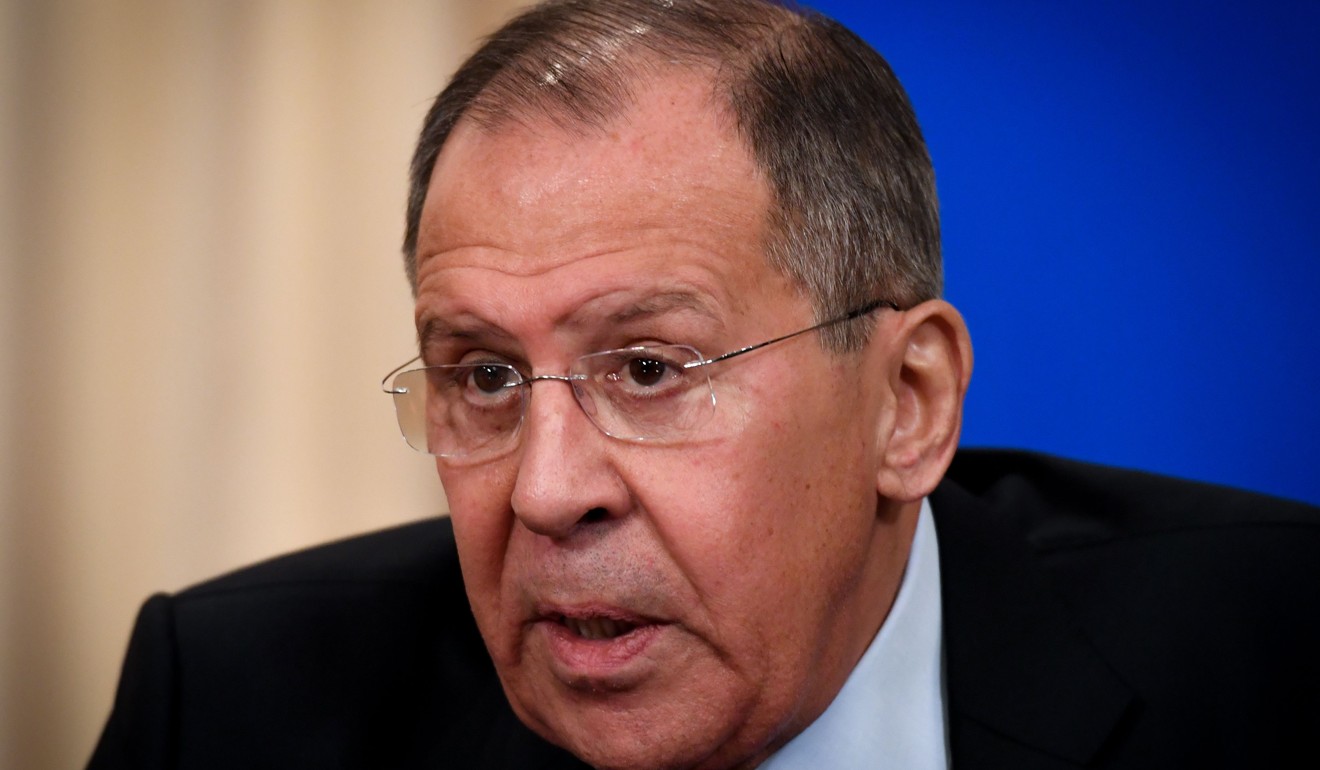
“A concrete humanitarian corridor has been set up that will be used to deliver humanitarian aid and, in the other direction, a medical evacuation can take place and all civilians who want to leave can,” Lavrov told a joint news conference in Moscow after meeting French Foreign Minister Jean-Yves Le Drian.
But the local branch of the opposition Syrian Interim Government’s Ministry of Health dismissed Russia’s truce call as a ploy to circumvent the UN month-long ceasefire resolution.
The call in effect offered residents a choice between “death under bombardment” or a forced displacement, it said, calling on the United Nations to send in relief aid immediately.
US Army General Joseph Votel, meanwhile, accused Russia of playing a destabilising role in Syria, saying Moscow had failed to rein in its Syrian ally.
“I’m being very serious when I say they play the role of both arsonist and fireman - fuelling tensions and then trying to resolve them in their favour,” he told the House Armed Services Committee.
“I think either Russia has to admit that it is not capable, or it doesn’t want to play a role in ending the Syrian conflict … I think their role is incredibly destabilising at this point.”
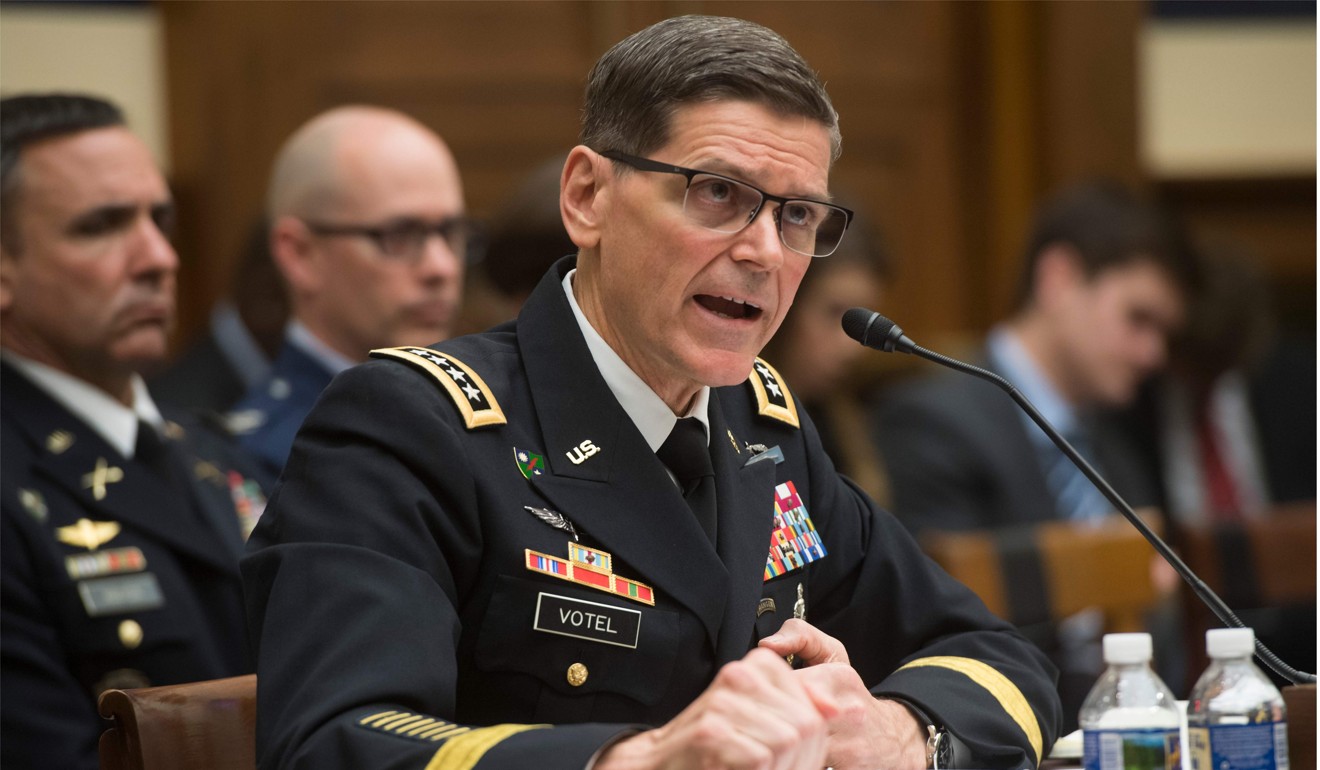
Russia’s military said rebels in eastern Ghouta started new offensives with intense artillery and gunfire after midday Tuesday, Interfax news agency reported, citing a Russian general.
Residents in several towns in the eastern Ghouta described a brief pause in fighting, but said bombardment swiftly resumed.
In Hammouriyeh town a man who identified himself as Mahmoud said helicopters and planes were in the sky and conducting strikes.
Siraj Mahmoud, a spokesman for the Civil Defence rescue service, which is funded by Western governments and operates in rebel areas, said artillery and air strikes had hit the region.
The Britain-based monitoring group Syrian Observatory for Human Rights said helicopters and warplanes had struck four towns and artillery shelling killed one person.
A UN Security Council resolution that was passed on Saturday called for a 30-day ceasefire across the entire country, but did not specify when it should start. It excludes some militant groups that are among the rebels in eastern Ghouta.
That has meant the ceasefire has not been observed in practice. UN spokesman Laerke declined to comment on the Russian proposal for a five-hour truce, but called instead on all sides to obey the full 30-day ceasefire.
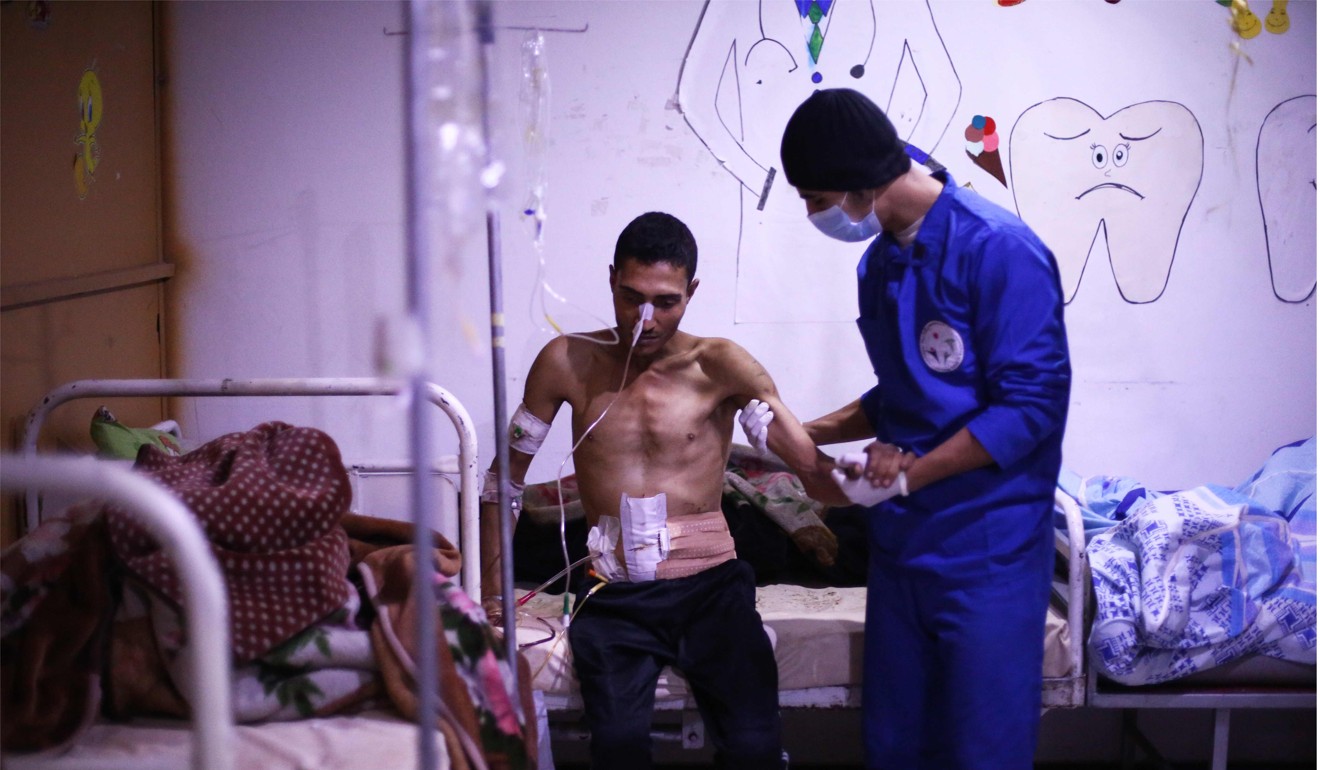
“It is a question of life and death … we need a 30-day cessation of hostilities in Syria as the Security Council demands,” Laerke, of the UN Office for the Coordination of Humanitarian Assistance, told a Geneva briefing.
A rebel spokesman said people in eastern Ghouta did not want to leave the area despite the bombardment, because they feared arrest, torture or conscription by the government. Russia said it would guarantee the safety of any civilians who left.
Eastern Ghouta, where the United Nations says around 400,000 people live, is a major target for Assad, whose forces have clawed back numerous areas with military backing from Russia and Iran.
Rebels based in eastern Ghouta have intensified shelling of government-held Damascus. A medical official in the capital said on Monday 36 people had been killed in four days.
Syrian state media reported eight people hurt by rebel shelling on Tuesday. Damascus and Moscow say the campaign in eastern Ghouta is needed to halt such shelling.
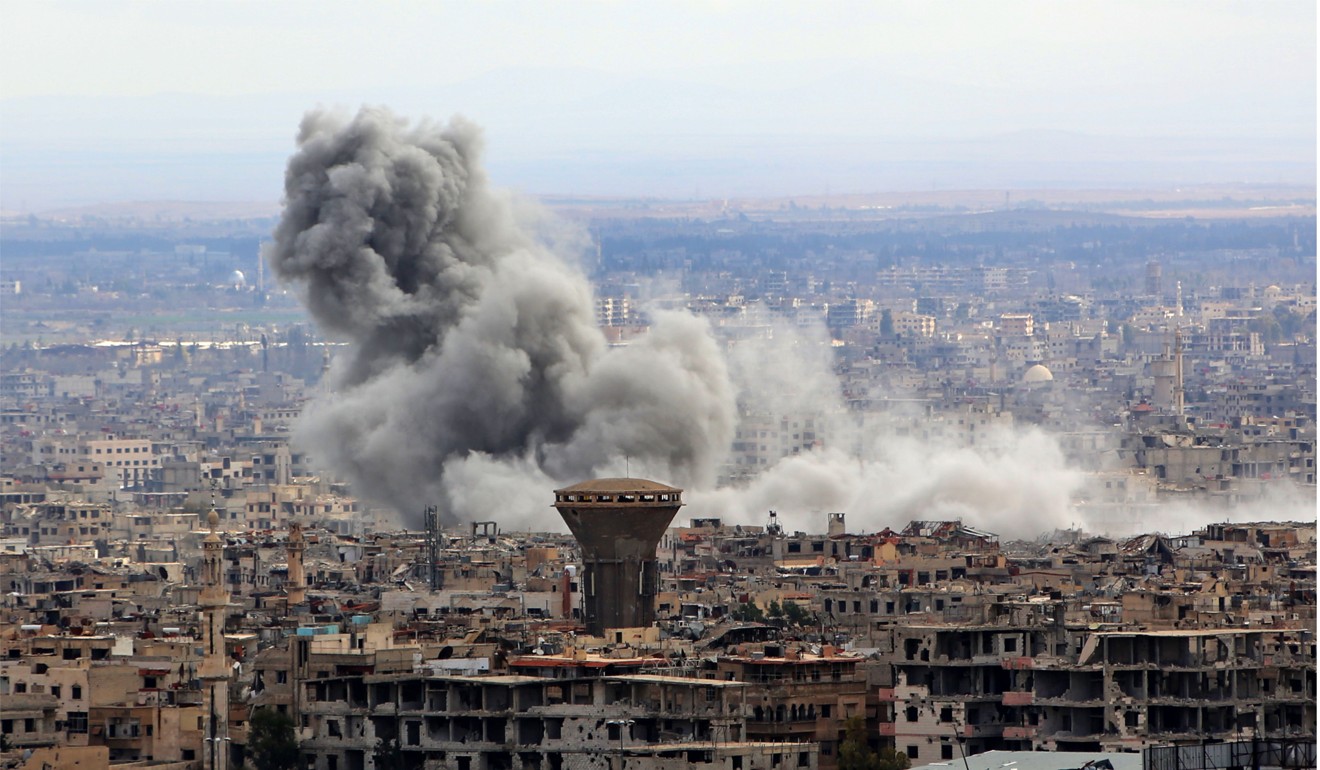
The multi-sided Syrian war has killed hundreds of thousands of people and driven half of the pre-war population of 23 million from their homes. Fighting has escalated on several fronts this year, with the collapse of Islamic State giving rise to conflict between other Syrian and foreign parties.
As Assad has pressed the offensive against eastern Ghouta, Turkey has launched an incursion against Kurdish fighters in the northwestern Afrin region.
Tensions have also flared between Iran and Israel, alarmed by Tehran’s influence in Syria. Syrian air defences shot down an Israeli F-16 earlier this month as it returned from a bombing raid on Iran-backed positions in Syria.
This report includes additional information from Associated Press.